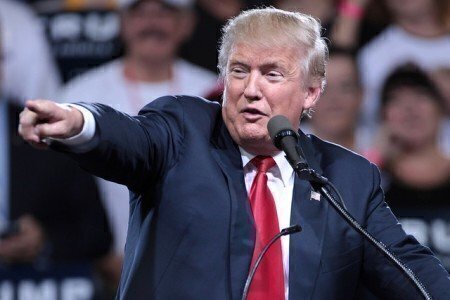On Friday afternoon, a joint session of Congress is expected to certify Donald Trump as the winner of the 2016 presidential election. Under the current version of the Constitution, does the President Elect have any constitutional duties or rights?

The words “President Elect” only appear four times in the Constitution, and they didn’t appear until 1933, when the 20th Amendment accounted for the unavailability of the President Elect to take the oath of office on Inauguration Day. That almost happened in 1877, when the disputed election between Rutherford Hayes and Samuel Tilden was decided and certified in Hayes’ favor just three days before his inauguration.
Once a candidate is certified by Congress as the winner of a presidential election, or a President is selected by the House in a run-off contingent election, the only constitutional provisions related to the President Elect are related to the winner’s availability to take the oath of office.
Link: Watch Congressional Vote Counting On C-SPAN
Once a candidate is certified by Congress as the winner of a presidential election, or a President is selected by the House in a run-off contingent election, the only constitutional provisions related to the President Elect are related to the winner’s availability to take the oath of office.
Article II, Section 1, Clause 8 of the Constitution requires the presidential oath of office: “Before he enter on the Execution of his Office, he shall take the following Oath or Affirmation:--"I do solemnly swear (or affirm) that I will faithfully execute the Office of President of the United States, and will to the best of my Ability, preserve, protect and defend the Constitution of the United States."
The 20th Amendment was a broad effort to address the long lame-duck period between presidential and congressional elections, and the inauguration of the President. Prior to its January 1933 ratification, the President took the oath about four months after the election. The 20th Amendment established the start of a new Congress in early January, with the presidential inauguration following about three weeks later.
It also addressed the possibility of a President Elect not qualifying for office. In several cases in addition to the Hayes-Tilden election, that might have been a possibility. In January 1853, President Elect Franklin Pierce survived a train accident that killed his 11-year-old son. Four years later, President Elect James Buchanan battled a serious illness contracted at Washington’s National Hotel as he planned his inauguration.
And in February 1933, President Elect Franklin Roosevelt survived an assassination attempt in Miami, about a month after the 20th Amendment was ratified. The amendment kept the 1933 inauguration date in March for the last time, but it also put into effect three provisions about a President Elect.
“If, at the time fixed for the beginning of the term of the President, the President elect shall have died, the Vice President elect shall become President. If a President shall not have been chosen before the time fixed for the beginning of his term, or if the President elect shall have failed to qualify, then the Vice President elect shall act as President until a President shall have qualified,” Section 3 of the amendment reads.
Under the Constitution’s Qualification Clause in Article II, Section 1, “No Person except a natural born Citizen, or a Citizen of the United States, at the time of the Adoption of this Constitution, shall be eligible to the Office of President; neither shall any person be eligible to that Office who shall not have attained to the Age of thirty five Years, and been fourteen Years a Resident within the United States.”
The 20th Amendment allows Congress to pass laws that deal with the unavailability of President Elect and Vice President Elect on Inauguration Day. The Presidential Succession Act of 1947 puts the Speaker of the House as first in position as Acting President until a President Elect or Vice President Elect qualifies for office.
And as for the matter of when the winner of the election actually becomes “President Elect,” that happens in a literal sense after Congress certifies the election results.
Yale scholar Akhil Reed Amar has written frequently on subjects related to presidential succession and his 1994 law review article is still cited today. (The article was also part of testimony Amar gave to the Senate in 1994.)
“Article II and the Twelfth Amendment seem to focus on the formal counting of votes in the Congress as the magic, formal moment of vesting in which the winning candidate is elected as ‘President,’” Amar argued. “Although the legislative history of the Twentieth Amendment suggests that the electoral college winner is ‘President elect’ the moment the eIectoral college votes are cast, and before they are counted in Congress, the text of the Amendment fails to say this explicitly.”
As far as constitutional duties placed on the official President Elect, that person becomes a government official after taking the oath, which qualifies the new President to start the “Execution of his Office.” The earliest that can happen is at 12 p.m. on January 20. Prior to Inauguration Day and taking the oath, a President Elect is entitled to Secret Service protection and also the use of office space under the Pre-Election Presidential Transition Act of 2010.
Scott Bomboy is the editor in chief of the National Constitution Center.







